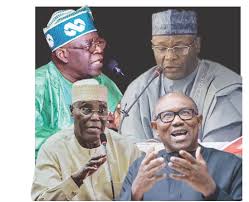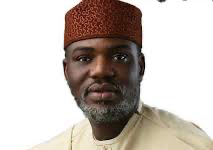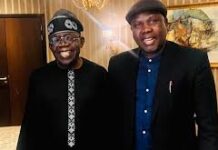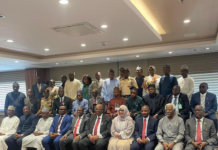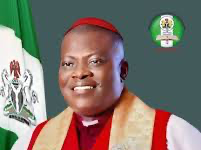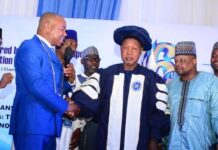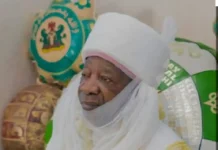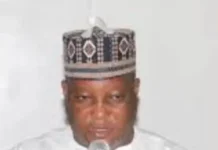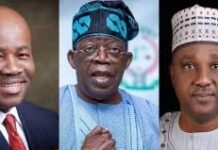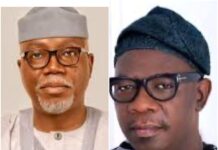2023 Presidential Election: Will Atiku, Obi Get ‘Justice’ at the Supreme Court?
By Kabir Akintayo
Since the advent of the Fourth Republic, all the presidential elections have been marred by a series of petitions, questioning the validity of results declared by the Independent Electoral Commission (INEC).
It was only the 2015 presidential election between the then incumbent president, Goodluck Jonathan and former president Muhammadu Buhari that was not challenged in court.
1999 Presidential Election Petition
The first election that took place after Nigeria’s return to democracy in 1999, was between Olusegun Obasanjo of the Peoples Democratic Party (PDP) and Olu Falae of Alliance for Democracy (AD). Obasanjo had defeated Falae in a presidential election held on the 27th of February,1999. Falae who claimed that the result was altered while he was asleep in the night, filed a suit at the Court of Appeal in Abuja, disputing Obasanjo’s victory as declared by INEC. He however lost the case in an April 19, 1999 ruling. The judgement delivered by Justice Dahiru Mustapher found that “the petition lacks merit and ought to be dismissed”.
2003 Presidential Election Petition
In 2003, the All Nigeria Peoples Party’s (ANPP) presidential candidate, Muhammadu Buhari, submitted a case contesting President Olusegun Obasanjo’s 2003 re-election, but it was denied by PEPT, in Abuja.
In his petition, he asked the court to declare Obasanjo’s re-election unconstitutional, due to his alleged corruption, disregard for the Electoral Act of 2002, and lack of eligibility to run for office at the time of the election.
He again went to the Supreme Court, but the apex court delivered a judgment that validated the Tribunal’s earlier ruling.
2007 Presidential Election Petition
The former President (Late) Umar Musa Yar’Adua was victorious in a fiercely-contested presidential election despite the fact that both domestic and foreign observers declared that the results fell short of international standards.
Atiku and Buhari disputed the election in court, and the Supreme Court ultimately, affirmed Yar’Adua’s victory at the polls.
2011 Presidential Election Petition
In the presidential election of April 16, 2011, Muhammadu Buhari, the Congress for Progressive Change (CPC) nominee, was unsuccessful in his attempt to overturn former President Goodluck Jonathan’s victory after he was declared the winner by a seven-member Supreme Court bench.
2019 Presidential Election Petition
The 2019 presidential election was between Atiku Abubakar of PDP, and the former president Muhammadu Buhari which was held on February 23, 2019. In a ruling issued on September 11, same year, the Court of Appeal upheld Buhari’s re-election.
On October 30, 2019, the Supreme Court decided unanimously that Atiku’s case was without merit.
Though, the election petition process in Nigeria is not devoid of laws guiding it. The several challenges, (difficulty in getting necessary documents from INEC, both manual and electronic) often faced by a majority of the parties, most especially the petitioners, have often led to the failure of such petitions and by extension eroded the confidence of parties in the election tribunal.
INEC Stands
Read Also:
According to the ‘Electoral Act 2022’, a Petition needs to be filed within 21 days of the election, after which the person seeking to challenge the petition will be out of time, and unable to proceed. After the petition is filed, the respondent (both the winner of the election and INEC) has 21 days to respond to the petition with their own position and their own side (with facts to back it up). If the response brings up any new facts, then the petitioner has 5 days to respond.
However, an election petition is a very detailed and fact-based process which requires the petitioner to not only state the grounds for the challenge, but to also provide evidence. In most cases, the petitioner does not have the evidence, and would need to get it from (INEC).
In addition to this, one of the lead councils of Peter Obi, Dr Livy Uzoukwu, explaining the challenges faced by the team, said that the tribunal determined that the witnesses and evidence were out of order for the petitioners missing the deadlines for submission.
“Election petitions are time-barred. But how on earth are the aggrieved candidates going to front-load the witnesses’ written depositions in a presidential race if they have to file within 21 days after the declaration? This is virtually unattainable. Yet, during the judgement, depositions of witnesses that were filed later were rejected,” Uzoukwu said.
Also speaking on the possibility of upturning a presidential election in Nigeria, a Professor of Political Science and International Relations at Nasarawa State University, Keffi, Dr Jideofor Adibe, in his article titled ‘Beyond the PEPT Judgement’, said that, it will be important for all election petitions to be concluded before the inauguration of the President including all elected officials.
He added that, allowing the President to be inaugurated while the election that brought him to power is still being contested in the courts means that such a President can maximally deploy the power of incumbency to consolidate his rule and make it more difficult for him to be unseated by the courts.
However, both Obi and Atiku’s legal counsels have approached the Supreme Court, to nullify the (PEPT) judgment that upheld the victory of president Tinubu in the 2023 presidential election.
While Atiku lead council, Chief Chris Uche, SAN, is praying the Supreme Court to set aside the whole findings and conclusions of the Tribunal on the grounds that they did not represent the true picture of the grounds of his petition, the LP candidate, Peter Obi’s lead counsel, Dr Livy Uzoukwu (SAN) approached the apex court on 51 grounds which they termed an error in law to prove that President Tinubu did not win the election and that it was wrong for both INEC, and the PEPC, to declare him winner when many incontrovertible points were proving otherwise.
Consequently, many experts in the field of law have advised that going to the Supreme Court would be a waste of money because the outcome might not be different, not just because the decision was unanimous but also because if power of incumbency accounted for the manner in which the judgment was delivered by the PEPT, as some argued, the same power of incumbency would likely also be in play at the Supreme Court.
Kabir Akintayo writes from Abuja and can be reached via his email: [email protected]

